


Why a major magazine put the issue of reparations for slavery on its June cover, I really don’t know. Maybe because Juneteenth – the festival marking the day in 1865 when Texas slaves learned of their emancipation 18 months after President Lincoln had signed it – comes in June. Of course, that date rolls around every June 19 and the concept of reparations existed long before emancipation.
Reparations came to my attention through civil rights activism in the 1960s, although it was proposed by abolitionists before the Civil War. Lincoln’s “40 Acres and a Mule” policy was actually a form of reparations, recognizing that the wealth of much of the country had come from the work of slaves who remained landless and penniless, and without many opportunities otherwise. Where it was implemented change happened, even in the Deep South. But it stalled after Lincoln’s assassination, and things went backwards as segregation took root and became the common public policy of the nation.
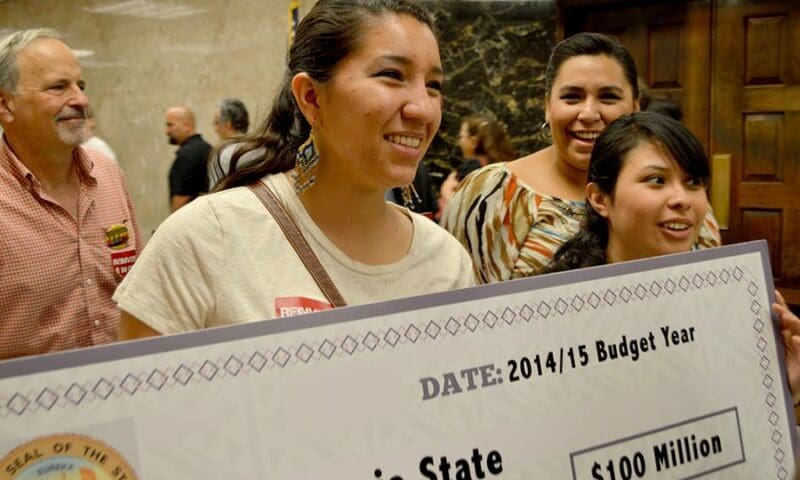


On Tuesday a coalition of faculty, legislators, staff and students (pictured above) marched to Governor Jerry Brown’s office in support of greatly increased funding for the California State University system. Governor Brown’s budget for the 2014-2015 fiscal year includes $142.2 million for the beleaguered CSU system, a five percent increase in its budget. Kevin Wehr, a sociology professor at CSU Sacramento and one of the marchers, said that “the governor’s proposal is welcome but it’s not nearly enough. [The cuts to the CSU budget] were massive, deep and really hurt the ability to deliver a quality public education.”
During the recession, many state programs were hit hard by budget cuts. However, the economic downturn took a particularly devastating toll on the state university system. More than a billion dollars was slashed from its budget as California dealt with the recession. Only a small fraction has since been restored.
The CSU system faces numerous problems.
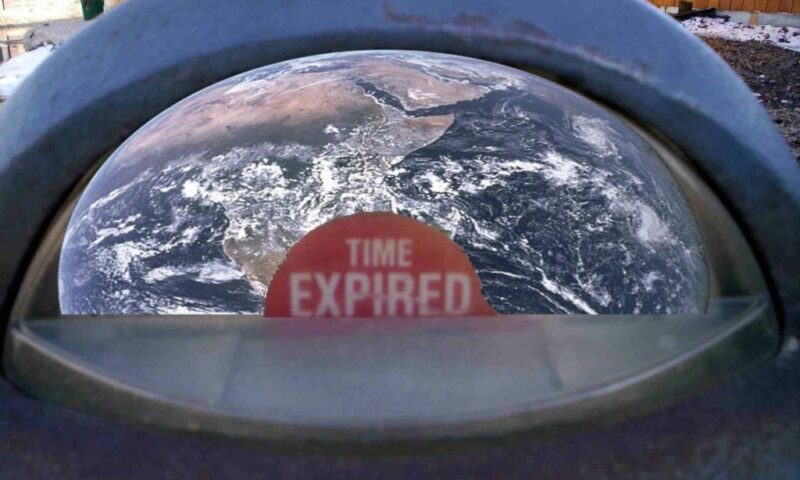
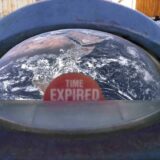
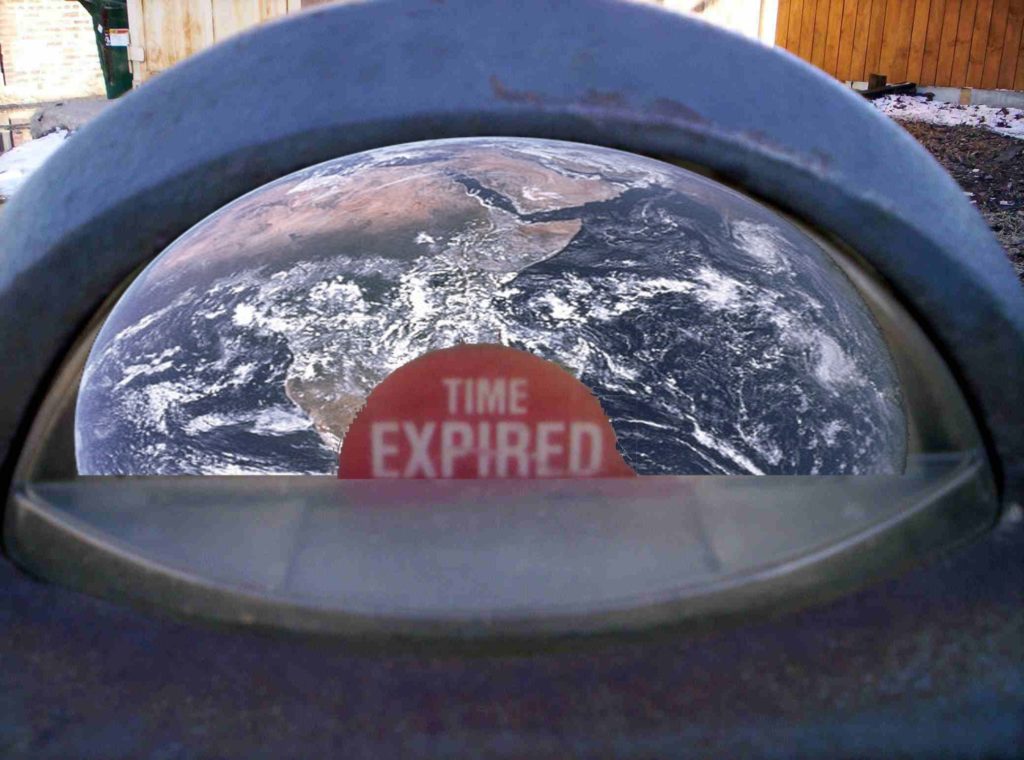
We already know that reckless outsourcing has negative impacts on the local community. But did you know it can also contribute to climate change? In a new op-ed I just published in Next City, Roosevelt University Professor Stephanie Farmer and I explore how poorly structured public-private partnership (P3) deals threaten long-term environmental sustainability.
To do it, we return to an old standby: Chicago’s parking meter debacle. Plans to build rapid bus lines and bike lanes have been put on hold in the Windy City because these projects would “compete” with the Morgan Stanley-backed corporate consortium that now runs the city’s 36,000 parking meters. And like so many other long-term outsourcing contracts, competition is a big no-no.
Chicago taxpayers would have to reimburse the consortium for lost revenue if they build projects that reduce traffic and carbon emissions – like bike lanes and bus rapid transit lines.
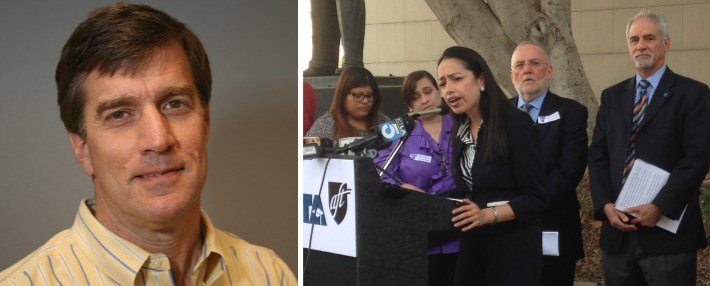
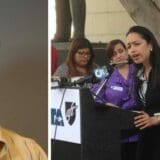
Reagan Duncan has taught a combined kindergarten-first grade class in Vista for 10 years. When she heard about Tuesday’s ruling in the Vergara v. California trial, she feared the worst. The case’s plaintiffs sought to throw out the state’s job protections for its teachers on the grounds that the safeguards make it impossible to dismiss “grossly ineffective” teachers.
“My first thought,” Duncan told Capital & Main, “was that it’s going to make it harder for well-run school districts to operate classes for our students – and worse for poorly run districts. The laws in place for dealing with teachers who struggle in the classroom have been working. I’ve seen teachers let go – it’s just not true that they never are.”
The bench trial, which began January 27 and unfolded over 10 weeks, was funded by Students Matter on behalf of nine public school students who claim that California’s policies violate the civil rights of students – particularly those of low-income and minority students – by denying them a quality education.
» Read more about: Aftermath: What the Vergara Decision Means »
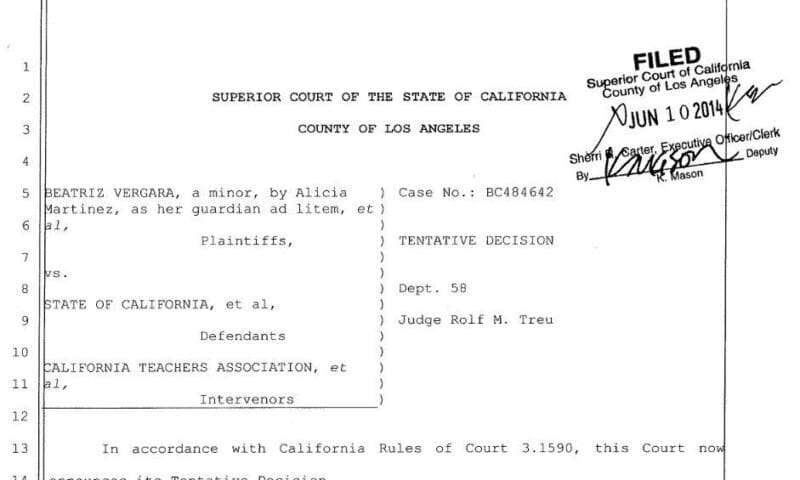
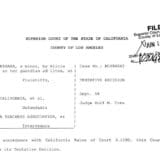
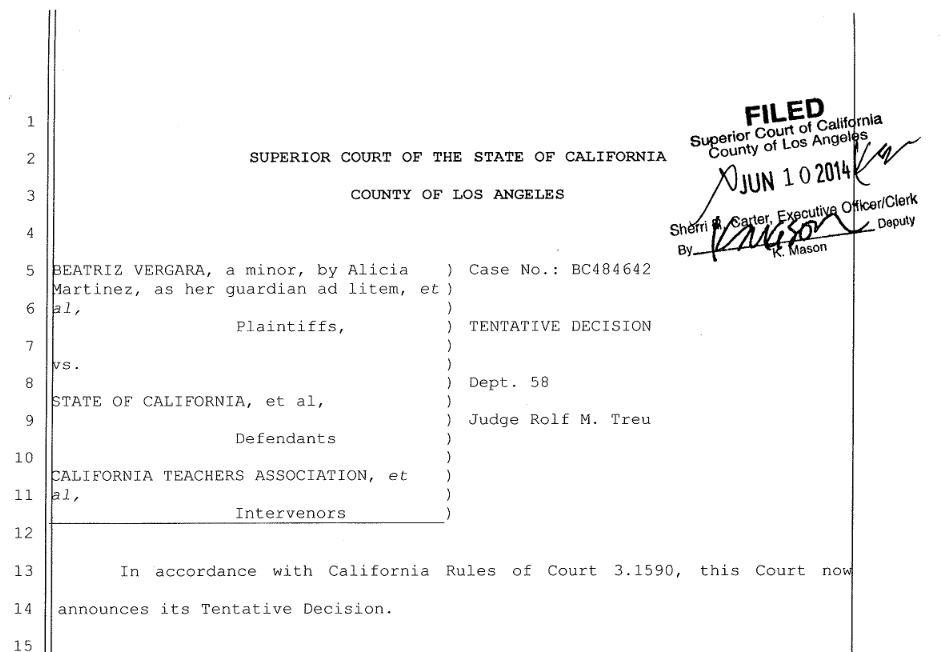
A Los Angeles judge ruled today that California’s public school teacher job protections are unconstitutional. The ruling, issued as a tentative decision, was immediately stayed by the Superior Court Judge, Rolf Treu, pending appeal.
The potentially far-reaching case, Vergara v. California, was brought on behalf of nine schoolchildren, who claimed the retention of “grossly ineffective” teachers through five due-process statutes violated their civil rights. They were organized by Students Matter, a Menlo Park nonprofit created by Silicon Valley entrepreneur David Welch, who had hired the white shoe law firm Gibson Dunn & Crutcher to represent the nine at the bench trial before Judge Treu.
Treu, appointed by Republican Governor Pete Wilson in 1995, found “that both students and teachers are unfairly, unnecessarily, and for no legally cognizable reason – let alone a compelling one – disadvantaged by the current permanent employment statute.”
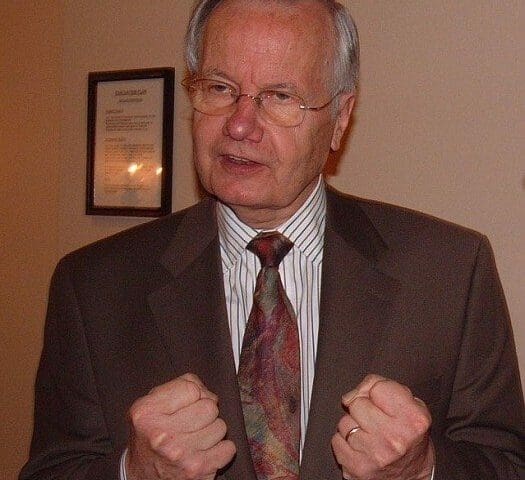
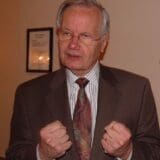
Bill Moyers, who turned 80 on Thursday, has been one of the most prolific and influential figures in American journalism. Not content just to diagnose and document corporate and political malpractice, Moyers has regularly taken his cameras and microphones to cities and towns where unions, community organizations, environmental groups, tenants rights activists and others were waging grassroots campaigns for change. Moyers has given them a voice. He has used TV as a tool to expose political and corporate wrongdoing and to tell stories about ordinary people working together for justice.
He has introduced America to great thinkers, activists and everyday heroes typically ignored by mainstream media. He has produced dozens of hard-hitting investigative documentaries uncovering corporate abuse of workers and consumers, the corrupting influence of money in politics, the dangers of the Religious Right, conservatives’ attacks on scientists over global warming and many other topics. A gifted storyteller, Moyers’ TV shows, speeches and magazine articles have roared with a combination of outrage and decency,
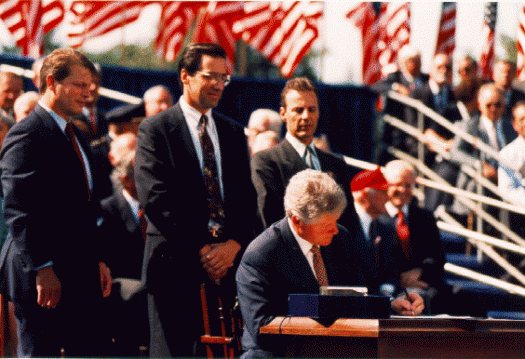
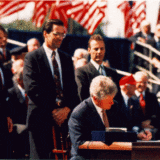
You have to be living in a cave to miss the brouhaha about French economist Thomas Piketty’s blockbuster Capital in the 21st Century. His book documents the widening gulf between the rich and the rest of us by examining tax rolls and other arcane data from before the last century in this country and Europe. He demonstrates conclusively that taxes on work are higher than taxes on wealth, playing a key role in creating and maintaining the gap.
That disparity was underscored again this month when the Los Angeles Business Journal published its list of the 50 richest in our region. According to the Journal the “aggregate net worth, adjusted for inflation” of the wealthiest half-a-hundred increased by $29 billion during the last five years. That includes four years of the Great Recession followed by disturbingly slow recovery, when huge unemployment rates kept a lot of people from sleeping.
» Read more about: Deliberately Unequal: Policy Choices at Inequality’s Roots »
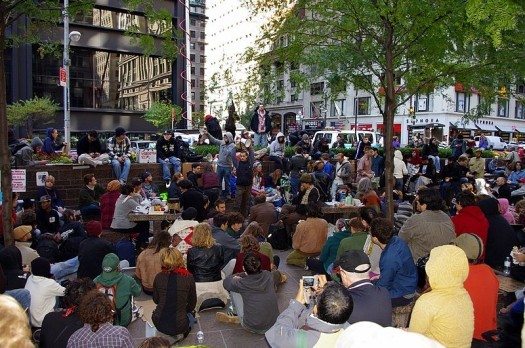
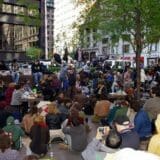
An idea that only a year ago appeared both radical and impractical has become a reality. On Monday, Seattle struck a blow against rising inequality when its City Council unanimously adopted a citywide minimum wage of $15 an hour, the highest in the nation.
This dramatic change in public policy is partly the result of changes brought about by last November’s Seattle municipal elections. But it is also the consequence of years of activism in Seattle and around the country. Now that Seattle has established a new standard, the pace of change is likely to accelerate quickly as activists and politicians elsewhere seek to capture the momentum. Five years from now, Americans may look back at this remarkable victory and wonder what all the fuss was about.
Seattle now joins a growing list of cities—including San Francisco, Santa Fe, Albuquerque, San Jose,
» Read more about: How Seattle’s $15 Minimum Wage Victory Began in Zuccotti Park »
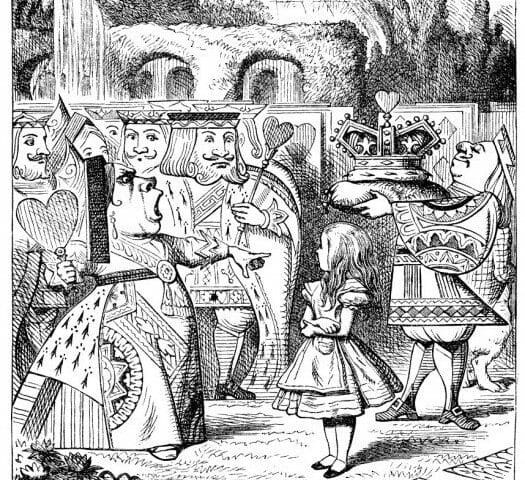
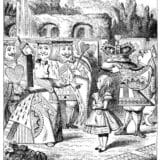
The commission charged with accrediting California’s two-year community colleges convened its three-day semiannual meeting in Sacramento yesterday morning. Conspicuously absent from the public agenda, however, is any mention of the action that has brought down an unprecedented firestorm of controversy onto the publicity-shy agency — its disaccreditation of the state’s largest community college.
At least the Accrediting Commission for Community and Junior Colleges (ACCJC) hasn’t included the fate of City College of San Francisco (CCSF) on its schedule for Friday’s public portion of the meeting. What’s on the program for the first two days — the sessions when the agency makes its substantive findings and decisions — is anyone’s guess. That part of the meeting is conducted in secret.
What is now certain is that no 11th-hour reprieve from the school’s approaching date with de-accreditation will be forthcoming. Supporters of the embattled college had been holding out hope that the commission would use the meeting to announce an extension to the July 31 termination deadline it set for the school’s accreditation during last June’s secret sessions.
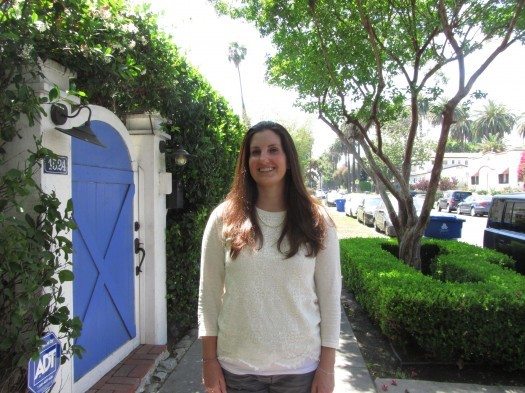

(They drive our trains and buses, teach our children, repair our roads and protect our safety. Public employees perform these and countless other jobs, although they remain mostly off the radar of the public they serve. Our Common Ground series takes us into the lives of these men and women.)
In a large lecture hall in the Biological Sciences Building of Cal State L.A., a student in the introductory anthropology class raised his hand to inquire as to whether or not female chimpanzees demonstrated the same sexual behaviors with each other that males did. “Not that it matters…” he remarked sheepishly. His question elicited giggles across the room while Dr. Jessica Bodoh-Creed shook her head knowledgably, visibly pleased with engagement of her students as she pointed out some key differences in male and female chimp behavior. With captivating energy, Dr. Bodoh-Creed continued her lecture on the behavioral patterns of chimpanzees with anecdotes and media to maintain active listening among her one hundred and forty students.
» Read more about: Dr. Jessica Bodoh-Creed: Adjunct for Now, Academic Forever »